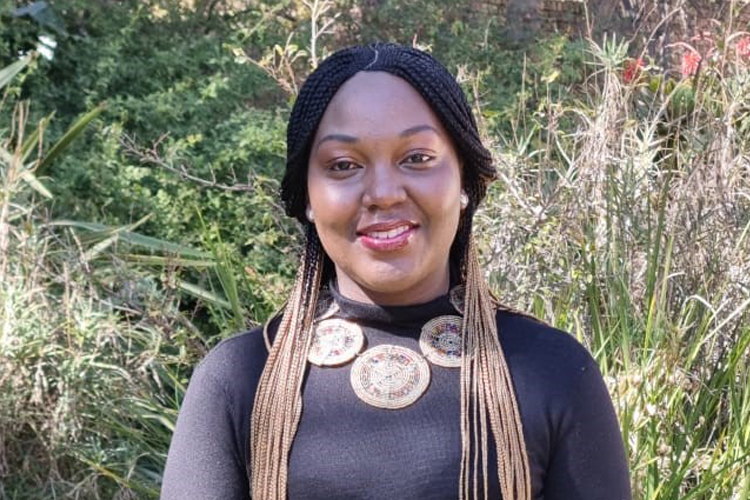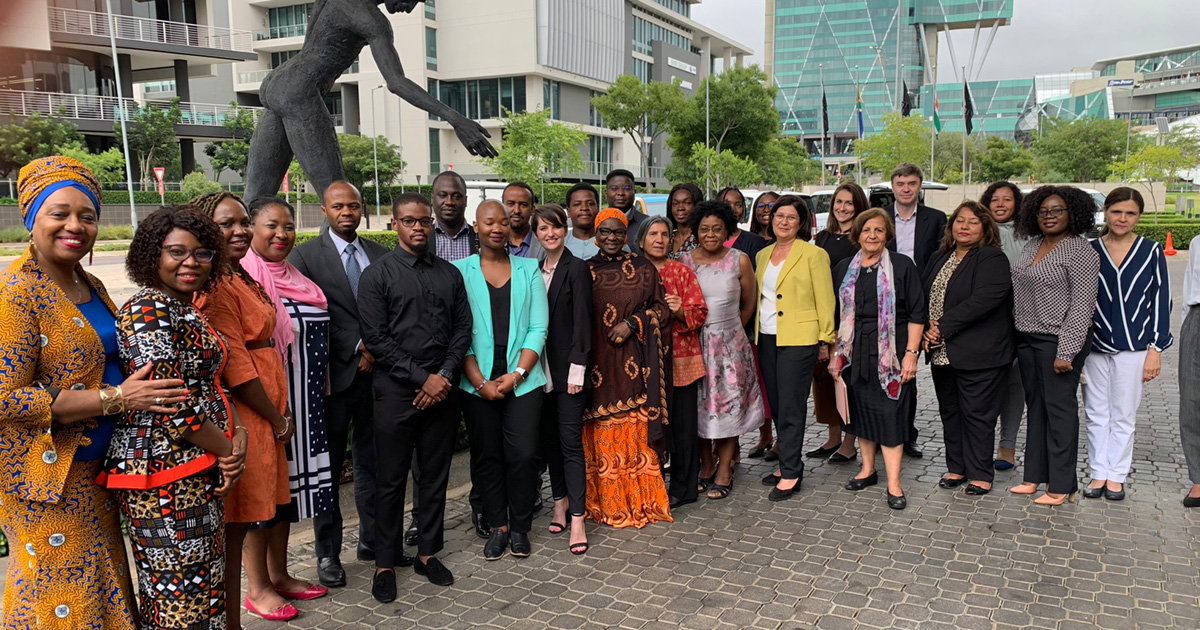On 1 and 2 February 2023, the Office of the President of the Republic of South Africa (the Presidency) in partnership with the Women’s Rights Unit, Centre for Human Rights held a workshop to review commissioned reports from 25 African countries on discriminatory laws related to violence against women on the African continent (VAW).
The Consultation meeting brings together officials from the office of the Presidency of the Republic of South Africa, members of a Technical Reference Team (TRT) that is constituted of prominent academics, legal and human rights, women’s rights and gender-based violence experts, the commissioned researchers and staffs of the Centre for Human Rights. TRT members present at the meeting were Prof Rashida Manjoo, Prof Mzikazi Nduna, Dr Eleanor Nwadinobi and Ms Rai Sow. Prof Olive Shisana of the Presidency delivered the opening statement.
The Centre for Human Rights at the University of Pretoria (the Centre) was engaged by the Office of the President of the Republic of South Africa, to conduct and coordinate a study to review the continent’s legal regime as regards VAW, focusing on laws that perpetuate it (the Study). Funded by the Embassy of Ireland in South Africa, the Study was conceptualised in three phases: an inception phase constituting a rapid assessment of the regional legal landscape on Violence Against Women (VAW), a continental study phase with in-depth analysis at country level to map trends and identify gaps in legislating on VAW and other legislative regimes that perpetuate social conditions for VAW; and a dissemination and advocacy phase that seeks to rally support for continental guidance on legislative responses to VAW. The Centre embarked on the first phase of the Study in 2020. A rapid assessment and a policy brief were developed in this phase.
For the second and current phase of the Study, independent researchers were commissioned in 25 selected countries in Africa to conduct a research which focuses on mapping out and analysing the specific VAW laws that African states have put in place to meet their obligations to protect from, prevent and respond to VAW. These include regional and international norms and standards that various African countries have ratified and signed, and the integration (or lack thereof) of these standards in the domestic laws of the countries. The research also considers the contextual issues experienced by women in the jurisdictions of the different African countries and the extent to which context impacts on the implementation of the laws available. The initial draft reports produced by the researchers were reviewed internally by the Centre for Human Rights.
The workshop served as an avenue for the Centre to finalise the reports by facilitating a critical discussion between the TRT and the country specific researchers. It was presented as panel discussions on each day allowing for sufficient time to engage in questions and discussions after each researcher presents their findings and the TRT members as well as the research consultants had the opportunity to suggest improvements to the report. It is intended that this exercise will result in final draft reports that will be consolidated into a joint Africa report and validated with various stakeholders from Africa going forward. The workshop also enabled the Centre to solicit guidance on maximising the impact of the final report in respective member states and regionally.
The ultimate goal of the project is to produce a Joint Africa report highlighting discriminatory laws, their impact on gender equality and the standard on life of women on the continent. It is intended that this report will be a useful instrument for the review and reform of these laws by African Union (AU) member states.
For more information contact

Tel: +27 (0) 12 420 4306
matilda.lasseko-phooko@up.ac.za
